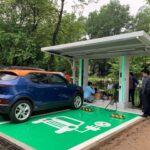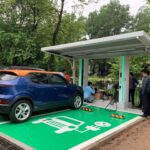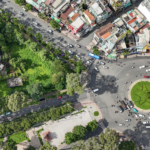Vietnam Needs Over $11 Billion for EV Charging Infrastructure by 2050
Vietnam aims to have 50% of urban vehicles, including all buses and taxis, electrified by 2030. By 2050, all road transport is targeted to be fully electric or green energy-powered.
“The transition to green transport with electric vehicles is a significant challenge, but Vietnam’s commitment is an important first step,” said Mariam J. Sherman, World Bank Country Director for Vietnam, Cambodia, and Laos.
According to the World Bank’s “Proposal for a Roadmap and National Action Plan for the Transition to Electric Vehicles” released on November 22, the path to electrifying transportation and decarbonizing the sector in Vietnam should focus on five pillars: electric vehicle manufacturing, demand stimulation, charging infrastructure development, ensuring electricity supply, and high-quality human resources training.
To build the charging network for these vehicles, Vietnam will need to invest approximately $2.2 billion by 2030, $13.9 billion by 2040, and a substantial $32.6 billion by 2050.
The World Bank also estimates that Vietnam needs to invest around $9 billion in the electricity sector from now until 2030. For the period 2031-2050, Vietnam is expected to invest an average of $14 billion annually to generate additional electricity and expand the network compared to the forecast in PDP8 (power development plan).
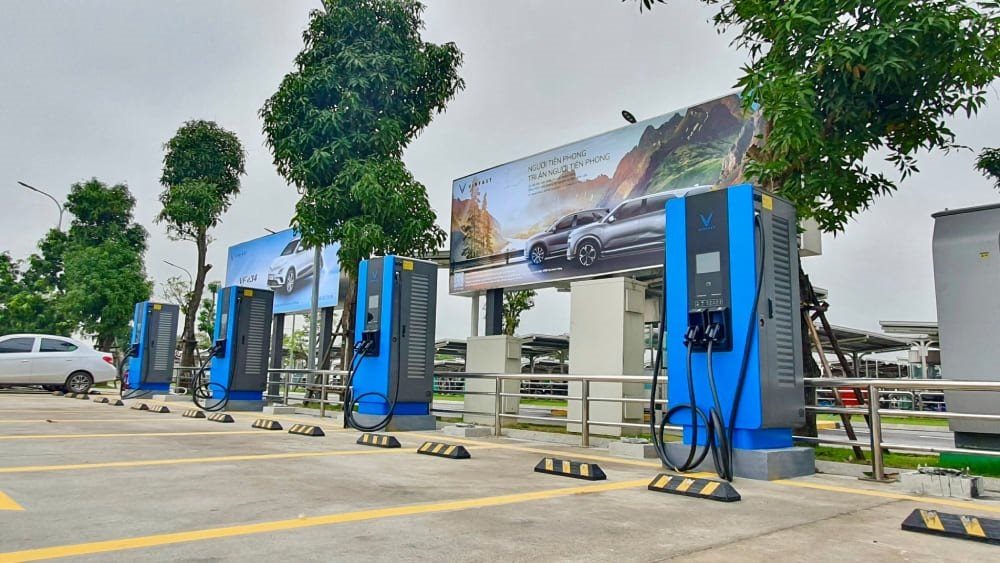
From now until 2030, Vietnam needs to invest $9 billion to secure electricity supply and $2.2 billion for charging infrastructure for EVs.
What’s the Current State of EV Charging Stations in Vietnam?
In reality, there are almost 150,000 EV charging ports across the country, according to the Vietnam Electricity Group (EVN). However, these charging stations are mainly located in apartment buildings, shopping malls, parking lots, and gas stations.
VinFast, a prominent name in Vietnam’s EV market, currently owns a nationwide charging network. In March 2024, billionaire Pham Nhat Vuong established V-GREEN, a company dedicated to developing charging infrastructure, in which he holds a 90% stake. V-GREEN’s goal is to support VinFast’s global expansion and position Vietnam among the countries with the highest density of EV charging stations.
As part of this initiative, V-GREEN plans to install 150,000 charging ports across all 63 provinces and cities in Vietnam. Additionally, the company, funded by Vingroup’s chairman, has committed to investing VND 10,000 billion in the next two years to build, upgrade, and enhance the charging network. In September 2024, V-GREEN introduced the “people’s charging station” model, offering charging station franchises nationwide. The company pledges to share a fixed revenue of VND 750 per kWh of charged electricity with its partners for a minimum of 10 years.
Aside from VinFast and V-Green, there are other players in Vietnam’s public charging market, including EV One (24 charging points) and EverCharge (19 charging points). There are also companies providing home charging solutions, such as EverEV, GreenCharge, Star Charge, and Autel.
While the EV charging station market in Vietnam is still nascent, its potential is evident, given the projected boom in EV adoption. The Vietnam Automobile Manufacturers Association (VAMA) forecasts that Vietnam will reach the milestone of 1 million electric vehicles by 2028 and approximately 3.5 million by 2040.
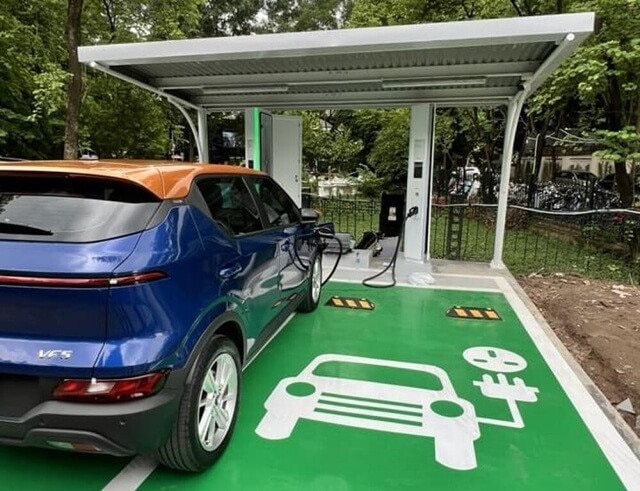
EV charging station by PV Power.
Recognizing this potential, PV Power, a leading electricity company in Vietnam, has signed an agreement with EN Technologies Inc. to collaborate on researching and developing EV charging systems in the country.
As per PV Power’s plan, after a two-year pilot, the company will assess the project’s effectiveness and then proceed to develop it nationwide, aiming to establish an additional 1,000 charging stations by 2035.
The $1.2 Billion Energy Giant Enters the EV Charging Game: Announces Competitive Rates of VND 3,858/kWh, on Par with VinFast
PV Power has taken a pioneering step by constructing its first electric vehicle charging station, with plans to rapidly expand across the nation. The company foresees an average charging rate of VND 3,858 per kWh, a competitive price point that matches that of Vinfast and undercuts other providers like EverCharge and EV One.

